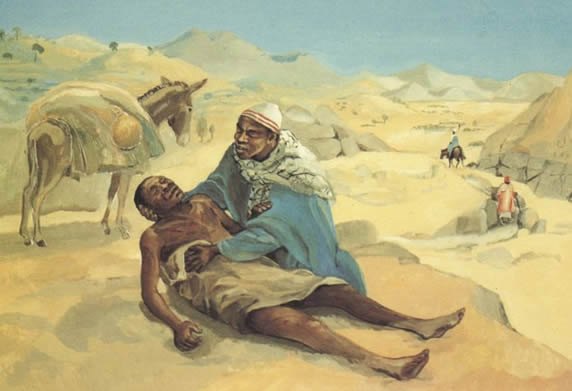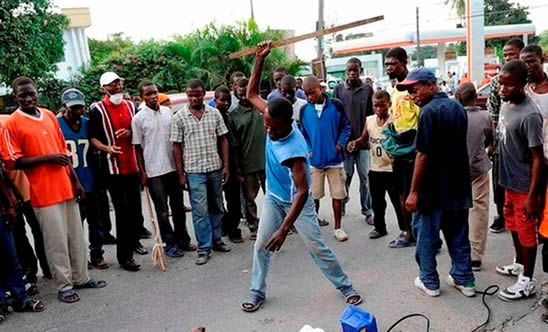 |
Weske uruon bo ket. (Kipsigis) Yale maovu unayomtendea mwenzako baadaye huenda ukafanyiwa vile vile. (Swahili) Le mal que vous avez fait pour d’autres seront. (French) The bad things you do to others may later be done to you too. (English) |
Kipsigis (Kenya) Proverb
Background, Meaning and Everyday Use
 The most familiar version of the Golden Rule says, “Do unto others as you would wish them do unto you.” Moral philosophy has barely taken notice of the golden rule in its own terms despite the rule’s prominence in common sense ethics. This African proverb approaches the rule, therefore, through the rubric of building its philosophy, or clearing a path for such construction. The approach stresses a common belief rather than elaborating an abstracted conception of the rule’s logic. This builds on the rule’s social experience and enables us to eliminate its long-standing misinterpretations and criticisms.
The most familiar version of the Golden Rule says, “Do unto others as you would wish them do unto you.” Moral philosophy has barely taken notice of the golden rule in its own terms despite the rule’s prominence in common sense ethics. This African proverb approaches the rule, therefore, through the rubric of building its philosophy, or clearing a path for such construction. The approach stresses a common belief rather than elaborating an abstracted conception of the rule’s logic. This builds on the rule’s social experience and enables us to eliminate its long-standing misinterpretations and criticisms.
The proverb notes the rule’s highly circumscribed social scope in the cultures of its origin and its role in framing psychological outlook toward others, not directing behavior. This emphasis eases the rule’s “burdens of obligation,” which are already more manageable than expected in the rule’s primary role: socializing children. But in a nutshell, the rule can be observed by adherence to social reciprocity conventions and their approved norms.
Biblical Parallels
Matthew 7:12: “Do unto others as you would have them do unto you.”
Luke 6:31: “And as you would that humans should do, you also do to them likewise.”
If we are thoroughly grounded in Christ’s love, then his command that we should do to others what we expect them to do to us can be easily obeyed. And this can be manifested through our acts both of justice and charity.
Contemporary Use and Religious Application
 This is the golden rule that is considered as the law of reciprocity in Christian religious faith — the principle of treating others as one would wish to be treated. It is both a religious and cultural altruism. The maxim may appear as either a positive or a negative injunction governing conduct as:
This is the golden rule that is considered as the law of reciprocity in Christian religious faith — the principle of treating others as one would wish to be treated. It is both a religious and cultural altruism. The maxim may appear as either a positive or a negative injunction governing conduct as:
- What you wish upon others, you wish upon yourself.
- One should not treat others in ways that one would not like to be treated.
- One should treat others as one would like others to treat oneself.
NOTE: This Kipsigis Proverb is in A Collection of 100 Kipsigis Proverbs and Wise Sayings by Sr Grace Njau in collaboration with the African Proverbs Working Group (Nairobi: Privately Printed, 2017).
Sister Grace Njau, CPS
Missionary Sisters of Precious Blood
Nairobi, Kenya
Cell phone: 0722 260 O78
Email: anngracenj@gmail.com
Bcz Mabuto, Ed.
Cephas Yao Agbemenu
Department of Fine Arts
Kenyatta University
P.O. Box 43844
Nairobi, Kenya
Cellphone: +254 723-307992
Email: cyagbemenu@yahoo.com

